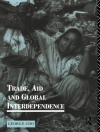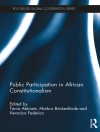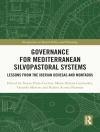The term ‘moral’ has had a chequered history in sub-Saharan Africa, mainly due to the legacy of colonialism and Apartheid (in South Africa). In contrast to moral education as a vehicle of cultural imperialism and social control, this volume shows moral education to be concerned with both private and public morality, with communal and national relationships between human beings, as well as between people and their environment. Drawing on distinctive perspectives from philosophy, economics, sociology and education, it offers the African ethic of Ubuntu/Botho as a plausible alternative to Western approaches to morality and shows how African ethics speaks to political and economic life, including ethnic conflict and HIV/AIDS, and may be an antidote to the current practice of timocracy that values money over people.The volume provides sociological tools for understanding the lived morality of those marginalised by poverty, and analyses the effects of culture, religion and modern secularisation on moral education. With contributions from fourteen African scholars, this book challenges dominant frameworks, and begins conversations for mutual benefit across the North-South divide. It has global implications, not just, but especially, where moral education is undertaken in pluralist contexts and in the presence of economic disparity.This book was published as a special issue of the Journal of Moral Education.
Sharlene Swartz & Monica Taylor
Moral Education in sub-Saharan Africa [PDF ebook]
Culture, Economics, Conflict and AIDS
Moral Education in sub-Saharan Africa [PDF ebook]
Culture, Economics, Conflict and AIDS
Cumpărați această carte electronică și primiți încă 1 GRATUIT!
Limba Engleză ● Format PDF ● Pagini 152 ● ISBN 9781317982494 ● Editor Sharlene Swartz & Monica Taylor ● Editura Taylor and Francis ● Publicat 2013 ● Descărcabil 3 ori ● Valută EUR ● ID 7119862 ● Protecție împotriva copiilor Adobe DRM
Necesită un cititor de ebook capabil de DRM












